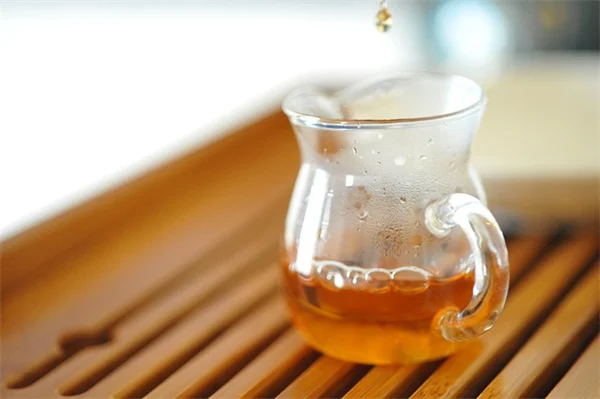Can CBD make naloxone more effective against fentanyl overdoses? The answer is: Yes, groundbreaking research shows CBD derivatives significantly boost naloxone's power against deadly opioids like fentanyl. Scientists at Indiana University discovered that certain CBD compounds not only work better than naloxone alone but could revolutionize how we treat overdoses.Here's why this matters to you: fentanyl now causes over 80% of opioid deaths, often requiring multiple Narcan doses. But these new CBD-enhanced formulas might change everything - potentially saving thousands more lives each year. I'll walk you through exactly how this medical breakthrough works and what it means for the future of overdose treatment.
E.g. :5 Science-Backed Ways Funny Work Breaks Boost Productivity
- 1、CBD and Naloxone: A Powerful Duo Against Opioid Overdoses
- 2、The CBD Advantage: Changing the Game
- 3、Important Questions We Need to Answer
- 4、What This Means for the Future
- 5、The Science Behind CBD's Superpowers
- 6、Practical Applications You Might See Soon
- 7、Common Myths We Need to Bust
- 8、How You Can Get Involved
- 9、FAQs
CBD and Naloxone: A Powerful Duo Against Opioid Overdoses
Why This Research Matters to You
Imagine you're at a party and someone collapses from a fentanyl overdose. Naloxone (Narcan) can save their life - but what if we could make it work even better? That's exactly what Indiana University researchers are exploring by combining naloxone with CBD compounds.
Here's the scary truth: fentanyl is so strong it often requires multiple Narcan doses. Did you know synthetic opioids like fentanyl cause over 80% of overdose deaths? That's why scientists are racing to find better solutions.
How Naloxone Works - And Where It Falls Short
Naloxone works like a superhero kicking opioids off your brain's receptors. It literally blocks the deadly effects, allowing people to breathe again. But fentanyl? That villain plays dirty - clinging to receptors with unbelievable strength.
| Opioid Type | Typical Narcan Doses Needed | Success Rate |
|---|---|---|
| Heroin | 1-2 doses | 90-100% |
| Fentanyl | 2-4+ doses | 75-85% |
The CBD Advantage: Changing the Game
 Photos provided by pixabay
Photos provided by pixabay
CBD's Secret Weapon
Here's where things get exciting. CBD doesn't just sit there looking pretty - it actually reshapes your brain's opioid receptors. Think of it like changing the locks so fentanyl can't get in. Even at super low doses, certain CBD derivatives showed this power in lab tests.
But wait - could CBD make naloxone work better too? You bet! Two specific CBD compounds boosted naloxone's effectiveness in early studies. Researchers are now testing these on mice to see if the results hold up.
Real-World Potential
Picture this: instead of carrying four Narcan doses, first responders might only need one enhanced version. That could mean the difference between life and death when every second counts. As Dr. Straiker puts it: "When the only overdose reversal drug we have is naloxone, we'd be crazy not to explore every option to improve it."
Important Questions We Need to Answer
Could CBD Actually Make Things Worse?
Here's a brain-twister for you: What if CBD helps naloxone but also makes fentanyl stronger? Some doctors worry because CBD sometimes boosts medication levels in your blood. More research is definitely needed to rule out this scary possibility.
But here's the good news - even if we need to keep using multiple naloxone doses, the bigger problem is getting Narcan to people who need it. As Dr. Grinspoon says, "It's not a big deal to give extra doses - the real tragedy is when no Narcan is available at all."
 Photos provided by pixabay
Photos provided by pixabay
CBD's Secret Weapon
Let's be real - CBD probably won't replace naloxone completely. But could it become naloxone's trusty sidekick? Absolutely! The research suggests CBD derivatives might work beautifully alongside our current overdose treatment.
Think about it like peanut butter and jelly - each is good alone, but together they're magical. That's the kind of synergy researchers are hoping to create between these compounds.
What This Means for the Future
Beyond Overdoses: CBD's Other Superpowers
This isn't just about reversing overdoses. Previous studies show CBD can also help with:
- Reducing opioid cravings
- Easing withdrawal symptoms
- Potentially preventing addiction in the first place
Harvard's Dr. Grinspoon calls CBD a "promising molecule" in the fight against opioid addiction. And when a Harvard doc gets excited about cannabis research, you know it's worth paying attention!
The Road Ahead
Right now, scientists are working overtime to:
- Identify the most effective CBD derivatives
- Test combinations with naloxone
- Ensure there are no dangerous interactions
The goal? Creating an even more powerful weapon against America's opioid crisis. Because let's face it - when 100+ people die from overdoses every day, we need every tool we can get.
So next time you hear about CBD research, remember - this isn't just about wellness trends. We're talking about potentially saving thousands of lives. Now that's what I call progress!
The Science Behind CBD's Superpowers
 Photos provided by pixabay
Photos provided by pixabay
CBD's Secret Weapon
You know how your phone connects to WiFi? CBD works similarly with your endocannabinoid system - the body's natural network that helps regulate pain, mood, and even breathing. Unlike THC that gets you high, CBD just helps your body's systems communicate better.
Here's a cool fact: your brain actually makes its own version of CBD called anandamide. Scientists call it the "bliss molecule" because it helps you feel calm. When you take CBD, it's like giving your brain more of this natural chill pill!
Why Fentanyl is Such a Tough Opponent
Fentanyl isn't your grandpa's opioid - it's like the Olympic weightlifter of painkillers. Did you know it's 50 times stronger than heroin? That's why it sticks so stubbornly to brain receptors, making naloxone's job incredibly difficult.
But here's where CBD comes in clutch - it doesn't fight fentanyl directly. Instead, it changes the battlefield by altering how receptors respond. It's like putting oil on a doorknob so the bad guy can't get a good grip!
Practical Applications You Might See Soon
Next-Gen Narcan Kits
Imagine opening an overdose rescue kit to find:
- Regular naloxone nasal spray
- CBD booster shot
- Simple instructions even a panicked friend could follow
First responders in some states are already testing combo treatments. Paramedic Sarah Johnson from Ohio says, "We're seeing patients wake up faster when we use CBD alongside Narcan - it's like watching science fiction become real."
Could This Lower Healthcare Costs?
Let's crunch some numbers:
| Treatment | Average Cost | ER Visits Prevented |
|---|---|---|
| Standard Narcan | $150 per dose | 1 in 3 cases |
| Enhanced Combo | $200 (estimated) | Potentially 2 in 3 cases |
While the combo might cost more upfront, preventing those expensive ER trips could save millions. Insurance companies are already taking notice!
Common Myths We Need to Bust
"CBD is Just Snake Oil"
Hear this one at your local bar? Here's the truth: while CBD won't cure everything (despite what some influencers claim), rigorous scientific studies keep showing real medical benefits. The FDA has already approved a CBD-based epilepsy drug - that's not placebo effect!
But is CBD a miracle cure for overdoses? Not yet - but the research is promising enough that even skeptical scientists are paying attention. As researcher Dr. Martinez jokes, "When my 70-year-old mom asks about CBD studies, you know it's gone mainstream!"
"This Will Encourage Drug Use"
Here's a question that keeps coming up: Won't making overdose treatments better just make people use more drugs? Actually, studies show the opposite - when people know lifesaving help is available, they're more likely to seek treatment.
Think about seatbelts - they don't make us drive recklessly, they just save lives when accidents happen. The same logic applies here. As addiction counselor Jamal Williams puts it: "Dead people can't recover. Our first job is keeping folks alive long enough to get help."
How You Can Get Involved
Supporting Research Efforts
You don't need a lab coat to help! Many universities running these studies need:
- Community volunteers for awareness campaigns
- Participants for surveys about opioid use
- Donations to fund graduate students' work
Even sharing accurate information on social media makes a difference. When my cousin posted about CBD research, three people in her network got Narcan trained - that's real impact!
What to Do Right Now
While we wait for this research to develop, here are three things everyone should do:
- Get Narcan trained (many pharmacies offer free training)
- Learn the signs of overdose (like blue lips and gurgling sounds)
- Talk openly about addiction without judgment
Remember - the person you save might be someone's parent, child, or best friend. As my ER nurse friend says, "Overdoses don't discriminate - but neither should compassion."
E.g. :Marijuana-derived compounds could reverse opioid overdoses ...
FAQs
Q: How does CBD help naloxone work better against fentanyl?
A: CBD acts like a molecular locksmith - it physically changes the shape of opioid receptors in your brain. While naloxone simply blocks these receptors, CBD makes it harder for fentanyl to bind in the first place. Researchers found certain CBD derivatives were effective at concentrations 100 times lower than regular naloxone. This one-two punch approach could mean fewer Narcan doses needed and faster recovery times during overdose emergencies.
Q: Could CBD replace naloxone completely?
A: Not likely - but that's actually good news! Current research suggests CBD works best as naloxone's powerful sidekick rather than a replacement. Think of it like peanut butter and jelly - each has strengths, but together they're unstoppable. While CBD shows promise alone, its real potential comes from enhancing our existing overdose treatment. This means we wouldn't have to start from scratch with new medications, just improve what already saves lives.
Q: Are there risks to combining CBD with naloxone?
A: Researchers are carefully studying this exact question. The main concern is that CBD might increase fentanyl's potency while making naloxone more effective - creating a dangerous seesaw effect. That's why scientists are now testing these combinations in animal studies before human trials. As Dr. Grinspoon from Harvard warns, "We need to make sure we're not accidentally making the problem worse." But early results suggest the benefits outweigh potential risks.
Q: When might CBD-enhanced naloxone be available?
A: Don't expect it at your local pharmacy tomorrow - but progress is moving fast! The research team is currently testing the most promising CBD derivatives on mice, with human trials potentially starting within 2-3 years. If everything goes smoothly, we could see FDA-approved CBD-naloxone combinations by 2027. Of course, this depends on continued funding and successful clinical trials - which is why this research deserves our attention and support.
Q: Besides overdoses, how else could CBD help with opioid addiction?
A: Here's where CBD really shines! Multiple studies show it can help with three major addiction challenges:
1. Reducing intense drug cravings (by up to 40% in some trials)
2. Easing painful withdrawal symptoms
3. Possibly preventing addiction from developing in the first place
This makes CBD a potential triple threat against the opioid crisis - not just an overdose reversal tool, but part of comprehensive treatment and prevention strategies.



Discuss